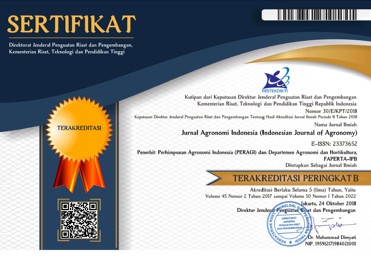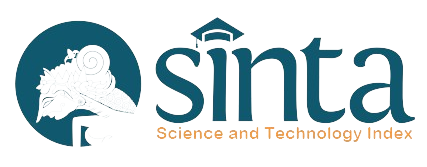Induksi Poliploidi Phalaenopsis amabilis (L.) Blume dan Phalaenopsis amboinensis J. J. Smith dengan Kolkisin dalam Kultur In Vitro
Abstract
ABSTRACT
Phalaenopsis amabilis (L.) Blume and Phalaenopsis amboinensis J.J. Smith (diploid) are important in Phalaenopsis breeding. Polyploid species are needed for crossing with polyploid hybrid varities of Phalaenopsis. The objectives of this study were to obtain effective concentration of colchicine to induce polyploidy and to produce polyploid plantlets of P. amabilis and P. amboinensis. Experiment was arranged in randomized complete block design with one factor, the colchicine concentration. Protocorms of P. amabilis and P. amboinensis were immersed in half strength of Murashige-Skoog (1/2 MS) liquid media added with colchicine (0; 0.5; 5; 25; 50, and 75 mg L-1) for 10 days. The results showed that higher concentration of colchicine on both species did not have significant effect on the survival of the plantlets at 24 weeks after treatment. The average number of leaves and roots of colchicine treated planlets from both species were less than the control plantlets. Immersing protocorm in colchicine at concentration of 50 mg L-1 for 10 days was effective in inducing polyploid plantlets of P. amabilis and P. amboinensis with the frequency of 33.3% and 40%, respectively. Polyploid plantlet has larger stomata size and lower stomata density than the diploid ones.
Keywords: chromosome number, colchicine, polyploid, protocorm, stomatal density, stomatal size












